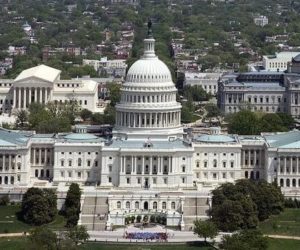Snaking its way through the Pennsylvania legislature is a bill that will block local governments from requiring companies to provide sick leave, even if unpaid, that is more than required by state or federal regulations.
There are no Pennsylvania or federal regulations requiring companies to provide sick leave. The Bureau of Labor Statistics reports that 39 percent of all employees, and 79 percent of all employees in food service and hotel industries, have no sick leave. Unlike the United States, about 130 countries require employers to provide at least one week of sick leave per employee.
The Republican-controlled state Senate passed the bill, 37–12; the Republican-controlled House will now discuss it—and probably follow the Senate’s wishes.
Gov. Tom Wolf opposes this legislation, will probably veto it, and then have to deal with a Senate that has enough votes to override that veto.
The proposed legislation is in response to Philadelphia’s recent directive that requires companies with at least 10 employees to provide mandatory sick leave for its workers. Several metropolitan U.S. cities, as well as California, Connecticut, and Massachusetts, already require companies to provide sick leave to employees.
Republicans are hypocritically philosophically conflicted on the legislation. Their party believes in limited government regulation, and this bill would keep government out of private enterprise’s believed-right to treat workers as serfs.
However, Republicans also believe that, if necessary, government should be at the lowest political level, and municipal government is about as low as it can get. Thus, cities should be able to impose rules and requirements in the absence of state and federal law.
Most legislators don’t understand political philosophy. What they understand is political donations. In this case, the business community opposes sick leave policies, believing corporate executives know better than workers or governments what’s best for the workers. As is the case for their opposition to raising minimum wage, it is because sick leave, somehow in their warped minds, reduces profits, shareholder dividends, and executive bonuses, benefits, and compensations.
The pretend-savings to preserve corporate greed, however, is a false economy. By not providing a decent sick leave policy, companies risk employees coming to work sick in order not to lose a day’s pay—or be fired.
This can lead to increased accidents because workers may be too ill to perform their jobs adequately.
The absence of a sick leave program can also lead a worker with a communicable disease to spread it to other workers and to the public. About 68 percent of all employees report they came to work with a stomach virus and other communicable diseases, according to a poll conducted by the National Opinion Research Center at the University of Chicago.
About 30 percent of all workers said they became ill because of communicable diseases spread by fellow workers, according to the National Foundation for Infectious Diseases.
Not having adequate sick leave also can result in workers not staying home to care for sick children who, without anyone to care for them, go to school sick, and cause illnesses in other students, staff, and teachers.
The absence of adequate sick leave can also contribute to low worker morale, less productivity, and higher turnover—all of which affect a corporation’s profit margin.
There is, of course, sick leave abuse—a worker who calls in sick and then spends the day golfing, or shopping, or is just plain hung over from last night’s party. Just as companies don’t have sick leave, they also don’t have personal days, which can be used for those days when an employee has an important family issue or just doesn’t feel like coming to work. The lack of personal days can significantly decrease worker productivity on the days they would rather be somewhere else than the office or factory line.
In contrast to the lack of sick leave and personal days, many corporations give upper management unlimited sick days and allow personal days for when a compelling social engagement, such as that golf outing with fellow business executives, seems to be “appropriate.”
None of this matters to Pennsylvania’s Republicans. Their issue is to give bosses full control over workers; they want to give bosses the right to issue benefits, sick leave, and personal days if they want to do so, or to exclude those benefits if they also want to do so. That’s what they believe is right.
And they are wrong.
[Dr. Brasch is an award-winning journalist, and author of 20 books. His latest book is the critically-acclaimed Fracking Pennsylvania.]

















